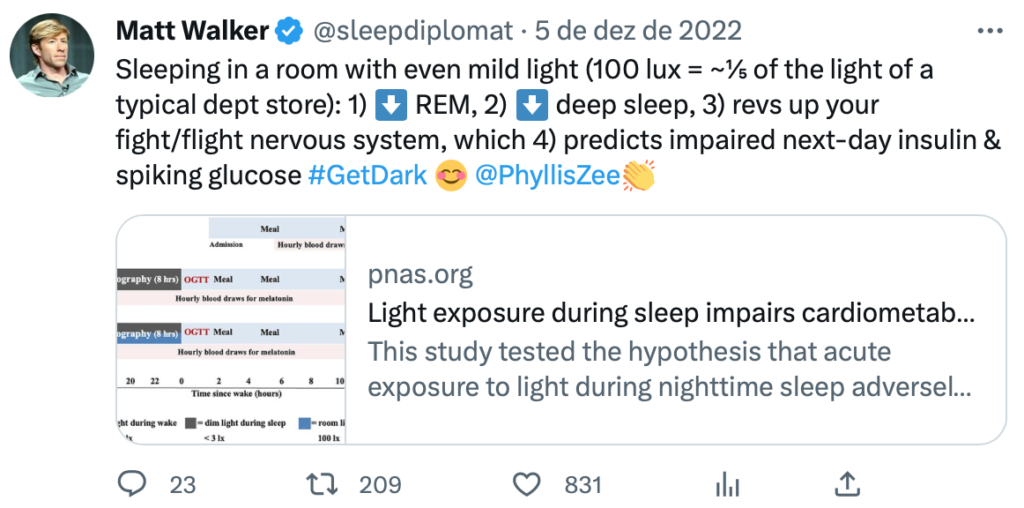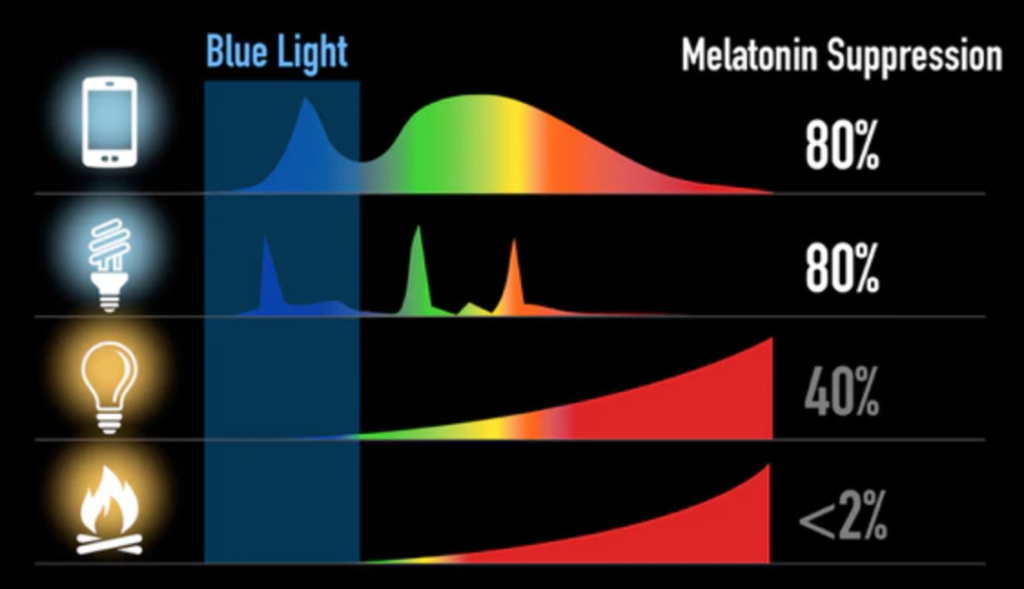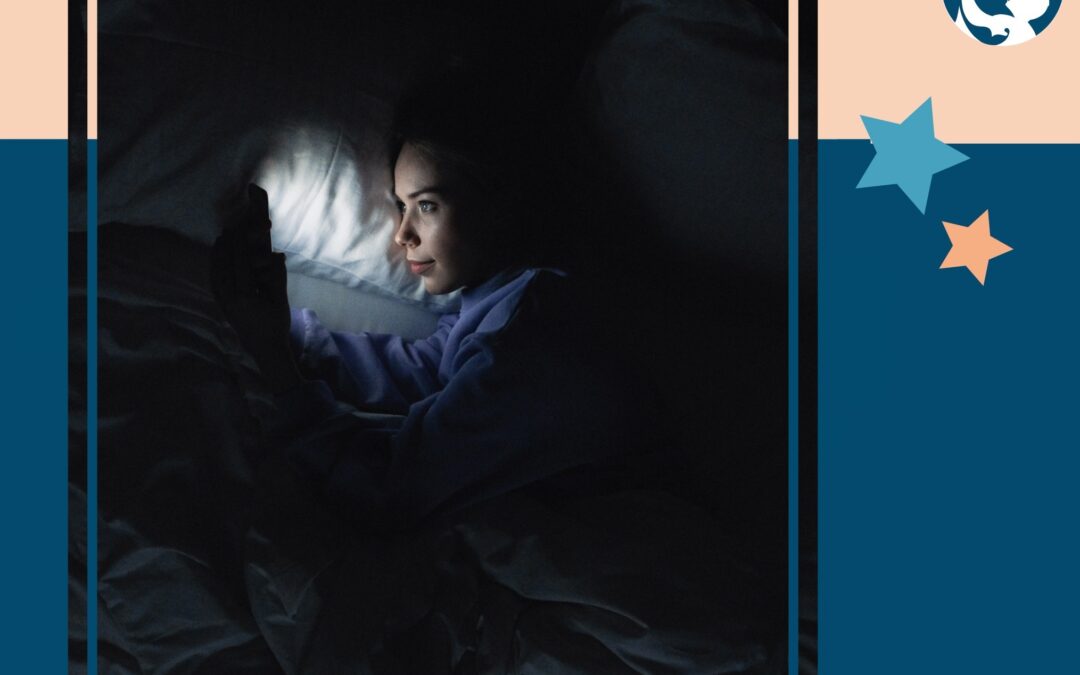We are not talking about the natural source of blue light from the sun. This type of light is essential for the functioning of your body. What impacts our sleep is the excess of blue light from electronics and artificial lights.
The sunlight will:
- give you more energy;
- stimulate your body and organism;
- improve your reaction time;
- speed up your thought process;
- improve your mood.
The human body needs blue light. More than that, the sleep-wake cycle depends on the light and darkness to function correctly and thus make you sleep when you need to sleep and wake up when you need to wake up.
The problem is that the sun is one of many blue light emitters during your day.
Smartphones, laptops, and televisions are examples of technologies emitting blue light to increase screen brightness.
And why is this a problem?
People spend too much time connected to electronics, so this excessive exposure to blue light has had side effects on physical health and especially on sleep.
To give you an idea, diseases such as cataracts, increased adrenocortical production, and decreased melatonin production are some of the problems that, in addition to the imbalance of hormones, negatively affect the quality of your sleep.

Unlike our bodies’ evolution to follow the cycle of blue light emitted by the sun, being in contact for long hours with artificial light directly in our eyes prevents the body from understanding when it is time to rest.
And the situation is even worse for people who habitually take electronic devices into the bedroom. Cell phones alone can decrease melatonin production by up to 80%.

And what does that mean?
Melatonin is known as the sleep hormone. It’s the one that will regulate your circadian cycle and help your body and mind understand when it’s time to sleep and when you should wake up. So, with the decrease of this hormone in the body, the tendency is that you have difficulty falling asleep and going back to sleep in the middle of the night (the same happens with kids).
You must be thinking: it’s impossible not to be exposed to blue light! This is true, but there are some ways to minimize the impacts of blue light on your sleep:
- Use blue light protectors on laptop and tablet screens;
- Prefer yellow or reddish lights to illuminate the house;
- Wear glasses that block blue light;
- Use blackout curtains in your bedroom;
- And avoid using electronic devices 2 to 3 hours before bed.
These are some tips to improve the quality of your sleep and reduce the impact of blue light. If you want to talk more about your sleep challenges, book a free consultation, and I will be happy to help you.
Carla Picolli
carla@nightnight.co.nz

